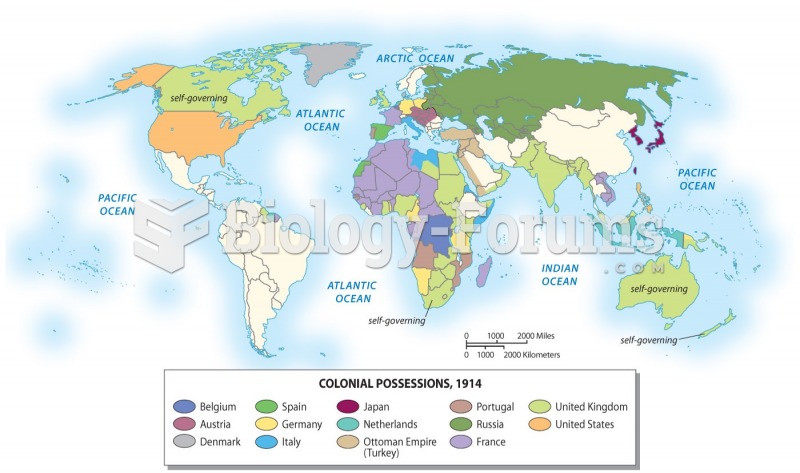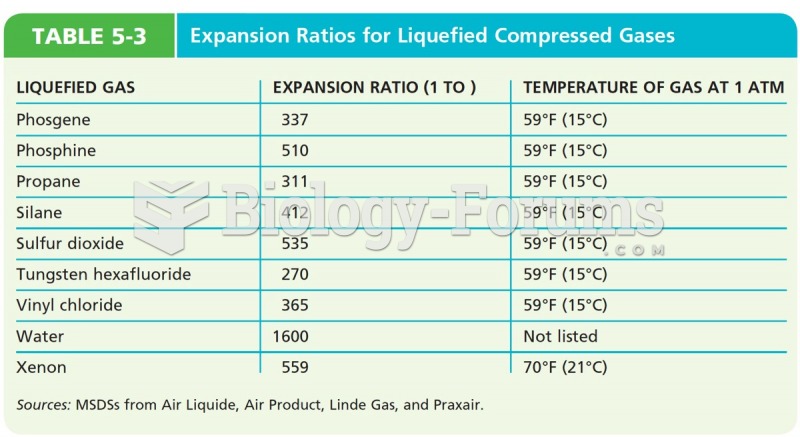|
|
|
The largest baby ever born weighed more than 23 pounds but died just 11 hours after his birth in 1879. The largest surviving baby was born in October 2009 in Sumatra, Indonesia, and weighed an astounding 19.2 pounds at birth.
The first successful kidney transplant was performed in 1954 and occurred in Boston. A kidney from an identical twin was transplanted into his dying brother's body and was not rejected because it did not appear foreign to his body.
Less than one of every three adults with high LDL cholesterol has the condition under control. Only 48.1% with the condition are being treated for it.
In 1835 it was discovered that a disease of silkworms known as muscardine could be transferred from one silkworm to another, and was caused by a fungus.
In the ancient and medieval periods, dysentery killed about ? of all babies before they reach 12 months of age. The disease was transferred through contaminated drinking water, because there was no way to adequately dispose of sewage, which contaminated the water.
 Humanmade pollutants may be driving the expansion of the Earth’s tropical belt seen
Humanmade pollutants may be driving the expansion of the Earth’s tropical belt seen
 “To confess my weakness,” Hamilton wrote when he was only fourteen, “my ambition is prevalent.” This
“To confess my weakness,” Hamilton wrote when he was only fourteen, “my ambition is prevalent.” This
 These illustrations show Ellen Craft, a slave with and without a disguise. She dressed “as a disting
These illustrations show Ellen Craft, a slave with and without a disguise. She dressed “as a disting




